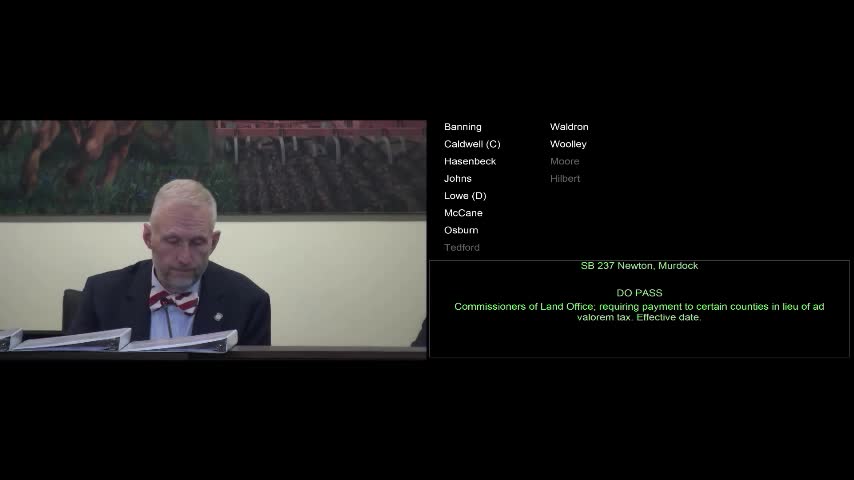Committee advances Math Achievement and Proficiency Act amid questions about teacher time and school capacity
Get AI-powered insights, summaries, and transcripts
Subscribe
Summary
The subcommittee reported Senate Bill 215, the Math Achievement and Proficiency Act, out of committee 8-2 after lawmakers asked how schools would schedule required screenings and individualized plans without overwhelming teachers' limited meeting time.
Pro Tem Moore presented Senate Bill 215 to the Appropriations and Budget Subcommittee on Education as the Math Achievement and Proficiency Act, saying the measure is aimed at improving math proficiency and STEM preparation across the state.
The bill would create multiple screenings and a process that may require meetings among school staff for "vertical and articulation" and would mandate individualized plans when students exhibit deficits. Pro Tem Moore described low national math results and urged the committee to support steps to improve outcomes.
Why it matters: Members raised practical concerns about how schools would schedule the screenings and create individualized plans within existing contract and planning time for teachers.
Key implementation concerns
Representative McCain repeatedly pressed the sponsor on how schools would find meeting time and who would be responsible for the added work. McCain pointed out that teachers have limited noninstructional time and that the bill's requirement to complete individualized plans "within 30 days of a student exhibiting a deficit" could be burdensome if invoked for isolated incidents.
Representative McCain asked whether the bill specified how deficits would be defined or demonstrated and whether the 30-day timeline might be applied too broadly. Pro Tem Moore said the district-by-district reality varies and that the sponsor would be willing to "talk about" the language but did not commit to specific edits at the hearing.
Budget and scale
Pro Tem Moore acknowledged the bill carries a fiscal note he described as difficult to fund in the current year and estimated a potential fiscal impact in the range of $10 million to $13 million. He said he was seeking priority passage for the policy and planned to pursue funding afterward.
Vote and next steps
The committee recorded an 8-2 vote in favor of the bill; the record shows proponents urged adoption and said the measure complements existing literacy efforts. The transcript does not show detailed statutory text or later amendments.
Ending
Supporters framed the bill as the "next step" after literacy improvements; opponents focused on teacher workload and implementation logistics. The bill was reported out of committee for further consideration.
